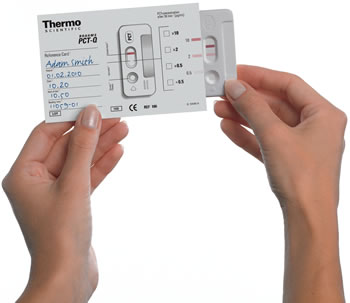Sepsis
Sepsis (blood poisoning or septicemia), is a potentially life-threatening condition, triggered by an infection or injury when the body’s immune system goes into overdrive as it tries to fight an infection. Without quick treatment, sepsis can lead to multiple organ failure and death. Early symptoms of sepsis may include a high temperature (fever) or a low body temperature (chills and shivering), a fast heartbeat and fast breathing.
In some cases,symptoms of more severe sepsis or septic shock (when your blood pressure drops to a dangerously low level) develop soon after. These can include: feeling dizzy or faint, a change in mental state (e.g. confusion or disorientation), nausea and vomiting, slurred speech, less urine production than normal (e.g. not urinating for a day) and cold, clammy, pale or mottled skin.
Sepsis is often diagnosed based on basic measurements including temperature, heart rate, breathing rate and a blood test. If sepsis is detected early and hasn’t yet affected vital organs, it may be possible to treat the infection at home with antibiotics.
Most people who have sepsis detected at this stage make a full recovery. Almost all people with severe sepsis and septic shock require admission to hospital. Some people may require admission to an intensive care unit (ICU). Due to problems with vital organs, people with severe sepsis are likely to be very ill and the condition can be fatal. However, if identified and treated quickly, sepsis is treatable, and in most cases leads to a full recovery with no lasting problems.
Possible tests to diagnose and monitor sepsis are Procalcitonin, CRP and Neopterin.
 Early detection and specific clinical intervention has been shown to be crucial for the improved outcome of patients with sepsis. However, sepsis can be difficult to distinguish from other, non-infectious conditions in critically ill patients with clinical signs of acute inflammation. Therefore, in the early phase of the disease process it may be difficult to decide on the appropriate therapeutic measures for the individual patient. Additional specific information may be helpful to increase the accuracy of sepsis diagnosis at an early stage. A parameter which fulfils these demands to a high degree is Procalcitonin (PCT).
Early detection and specific clinical intervention has been shown to be crucial for the improved outcome of patients with sepsis. However, sepsis can be difficult to distinguish from other, non-infectious conditions in critically ill patients with clinical signs of acute inflammation. Therefore, in the early phase of the disease process it may be difficult to decide on the appropriate therapeutic measures for the individual patient. Additional specific information may be helpful to increase the accuracy of sepsis diagnosis at an early stage. A parameter which fulfils these demands to a high degree is Procalcitonin (PCT).
Since laboratory service is not always available, rapid testing is an alternative way of acquiring information at any time. The rapid B·R·A·H·M·S PCT-Q test meets this clinical demand for immediate confirmation or exclusion of a severe bacterial infection or sepsis.
BRAHMS PCT Sensitive is a fully automated assay available on the Kryptor analyzer. It was the first PCT assay available to the market and has a proven track record for accuracy and reliability since 2002. It is ideal for pediatric patients as it requires a sample volume of only 55ul.
For more information:
C-reactive protein (CRP) is a substance produced by the liver in response to inflammation. A high level of CRP in the blood is a marker of any condition that causes inflammation, from an upper respiratory infection to heart disease and cancer.
For more information on C-reactive protein (CRP), please contact Humor Diagnostica.
Neopterin is regarded as an early biomarker of the cellular immune response. Neopterin is produced by activated monocytes, macrophages, and dendritic cells upon stimulation by interferon gamma produced by T-lymphocytes.It is a useful biomarker for monitoring of infectious disease activity during treatment.
For more information on Neopterin, please contact Humor Diagnostica.
